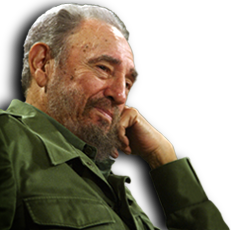Operation Truth, Fidel Castro's tactic to counter media war

Date:
Source:
The US media war deployed against Cuba began before the triumph of the Revolution on January of 1959 when the story of the death of Rebel leader Fidel Castro in the Sierra Maestra mountains was published.
The lie, which is currently defined as fake news was repeated several times in different media outlets when in 1957, US journalist Herbert Matthews from the New York Times published an exclusive interview with Fidel Castro.
Argentinean journalist Jorge Ricardo Masetti and Carlos Maria Gutierrez from Uruguay among others, published interviews and reports of the rebel leaders on the development of the guerrilla fight in Cuba.
Amidst the strong combats in 1958 against the Fulgencio Batista army, the rebel leaders considered the need to narrate with their own communication means, thus the birth of Radio Rebelde before the triumph of the Revolution to inform listeners on the actions and objectives of the revolutionary process.
Before the triumph of the Rebels on January 1, 1959, important US media outlets reported new attacks, especially on the open public trials against war criminals and members of the ousted dictatorship.
The Commander in Chief denounced on January 13 the US campaign which he characterized as 'the vilest, most criminal and unjust ever launched against a nation'.
Among some of the first measures taken by the Revolution, Fidel Castro called on January 21 and 22 for 400 foreign journalists and some US Congress people to witness the trials and learn about the reality of Cuba with 'Operation Truth'.
Characterized as the 'largest press conference in the world', the Cuban leader denounced the information monopoly of the US agencies and urged the need for Latin America to have its own voice.
We, he added, do not have international news cables. You, Latin American journalists have no other choice but to accept what non-Latin American news cables report.
According to UNESCO, UPI, Associated Press, combined, had during those years 261 correspondents in the US and 167 in other nations, in addition to thousands of reporters, mainly in Latin America.
'The press in America should be in possession of media outlets that can spread the truth and not be a victim of lies', he said.
'Operation Truth', concluded, with visitors having full access of the trials, Fidel Castro then traveled to Venezuela on January 24 where he reiterated the idea of creating an agency that can defend the peoples of Latin America.
'We need, he said, the creation of an information agency at the service of democracy that can defend the peoples of America in the struggle for democracy and serve as a counterbalance to the campaigns that distort the truth.
Five months later on June 16, the Latin American Information Agency Prensa Latina was the first alternative media in the region with the collaboration of Cuban and Latin American journalists.
Prensa Latina celebrates its 62 anniversary with almost 40 correspondents in the world, transmitting 400 daily news items in several languages, while offering multimedia, radio and television services and publishes many publications.
The agency (www.prensa-latina.cu) opposes resistance to the long media war strengthened by the Donald Trump administration with the support of US government-paid and foreign media outlets.



